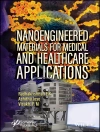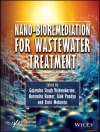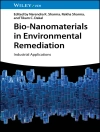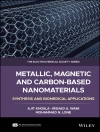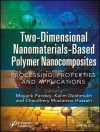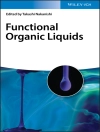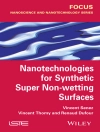The most comprehensive reference on fluorescent nanodiamond physical and chemical properties and contemporary applications
Fluorescent nanodiamonds (FNDs) have drawn a great deal of attention over the past several years, and their applications and development potential are proving to be manifold and vast. The first and only book of its kind, Fluorescent Nanodiamonds is a comprehensive guide to the basic science and technical information needed to fully understand the fundamentals of FNDs and their potential applications across an array of domains. In demonstrating the importance of FNDs in biological applications, the authors bring together all relevant chemistry, physics, materials science and biology.
Nanodiamonds are produced by powerful cataclysmic events such as explosions, volcanic eruptions and meteorite impacts. They also can be created in the lab by high-pressure high-temperature treatment of graphite or detonating an explosive in a reactor vessel. A single imperfection can give a nanodiamond a specific, isolated color center which allows it to function as a single, trapped atom. Much smaller than the thickness of a human hair, a nanodiamond can have a huge surface area that allows it to bond with a variety of other materials. Because of their non-toxicity, nanodiamonds may be useful in biomedical applications, such as drug delivery and gene therapy.
* The most comprehensive reference on a topic of rapidly increasing interest among academic and industrial researchers across an array of fields
* Includes numerous case studies and practical examples from many areas of research and industrial applications, as well as fascinating and instructive historical perspectives
* Each chapter addresses, in-depth, a single integral topic including the fundamental properties, synthesis, mechanisms and functionalisation of FNDs
* The first book published by the key patent holder with his research group in the field of FNDs
Fluorescent Nanodiamonds is an important working resource for a broad range of scientists and engineers in industry and academia. It will also be a welcome reference for instructors in chemistry, physics, materials science, biology and related fields.
Tentang Penulis
Huan-Cheng Chang, Ph D, Distinguished Research Fellow, Institute of Atomic and Molecular Sciences (IAMS), Academia Sinica, Taipei, Taiwan, Republic of China. Academia Sinica is the national academy of the Republic of China.
Wesley Wei-Wen Hsiao, Ph D, LLM is CEO of FND Biotech, Inc., Taipei, Taiwan, Republic of China.
Meng-Chih Su, Ph D, Professor in Chemistry, Sonoma State University (SSU), Rohnert Park, California, USA. Dr. Su has served as Department Chair for the Chemistry Department and later the Engineering Science Department at SSU.


